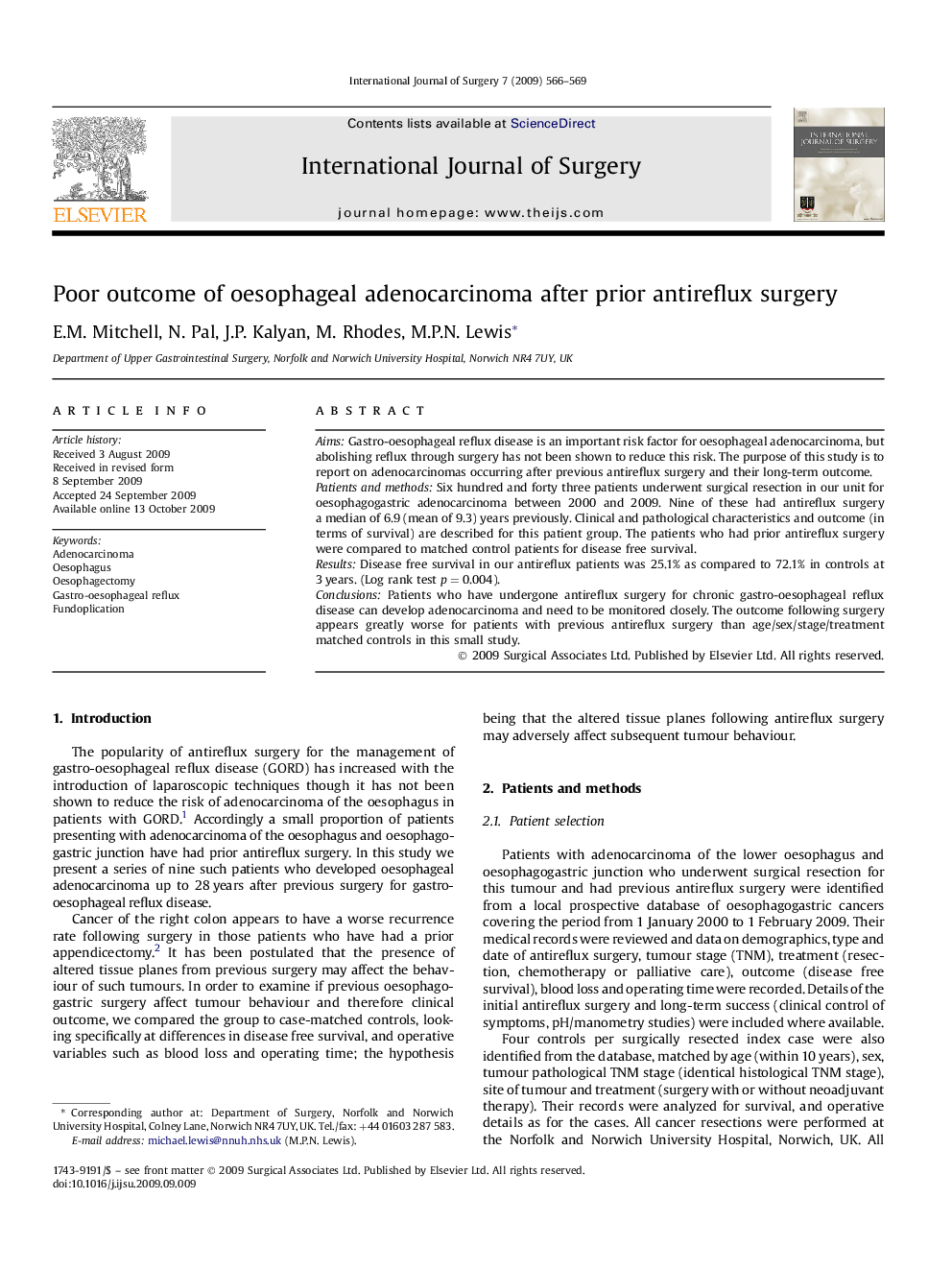| Article ID | Journal | Published Year | Pages | File Type |
|---|---|---|---|---|
| 4287916 | International Journal of Surgery | 2009 | 4 Pages |
AimsGastro-oesophageal reflux disease is an important risk factor for oesophageal adenocarcinoma, but abolishing reflux through surgery has not been shown to reduce this risk. The purpose of this study is to report on adenocarcinomas occurring after previous antireflux surgery and their long-term outcome.Patients and methodsSix hundred and forty three patients underwent surgical resection in our unit for oesophagogastric adenocarcinoma between 2000 and 2009. Nine of these had antireflux surgery a median of 6.9 (mean of 9.3) years previously. Clinical and pathological characteristics and outcome (in terms of survival) are described for this patient group. The patients who had prior antireflux surgery were compared to matched control patients for disease free survival.ResultsDisease free survival in our antireflux patients was 25.1% as compared to 72.1% in controls at 3 years. (Log rank test p = 0.004).ConclusionsPatients who have undergone antireflux surgery for chronic gastro-oesophageal reflux disease can develop adenocarcinoma and need to be monitored closely. The outcome following surgery appears greatly worse for patients with previous antireflux surgery than age/sex/stage/treatment matched controls in this small study.
